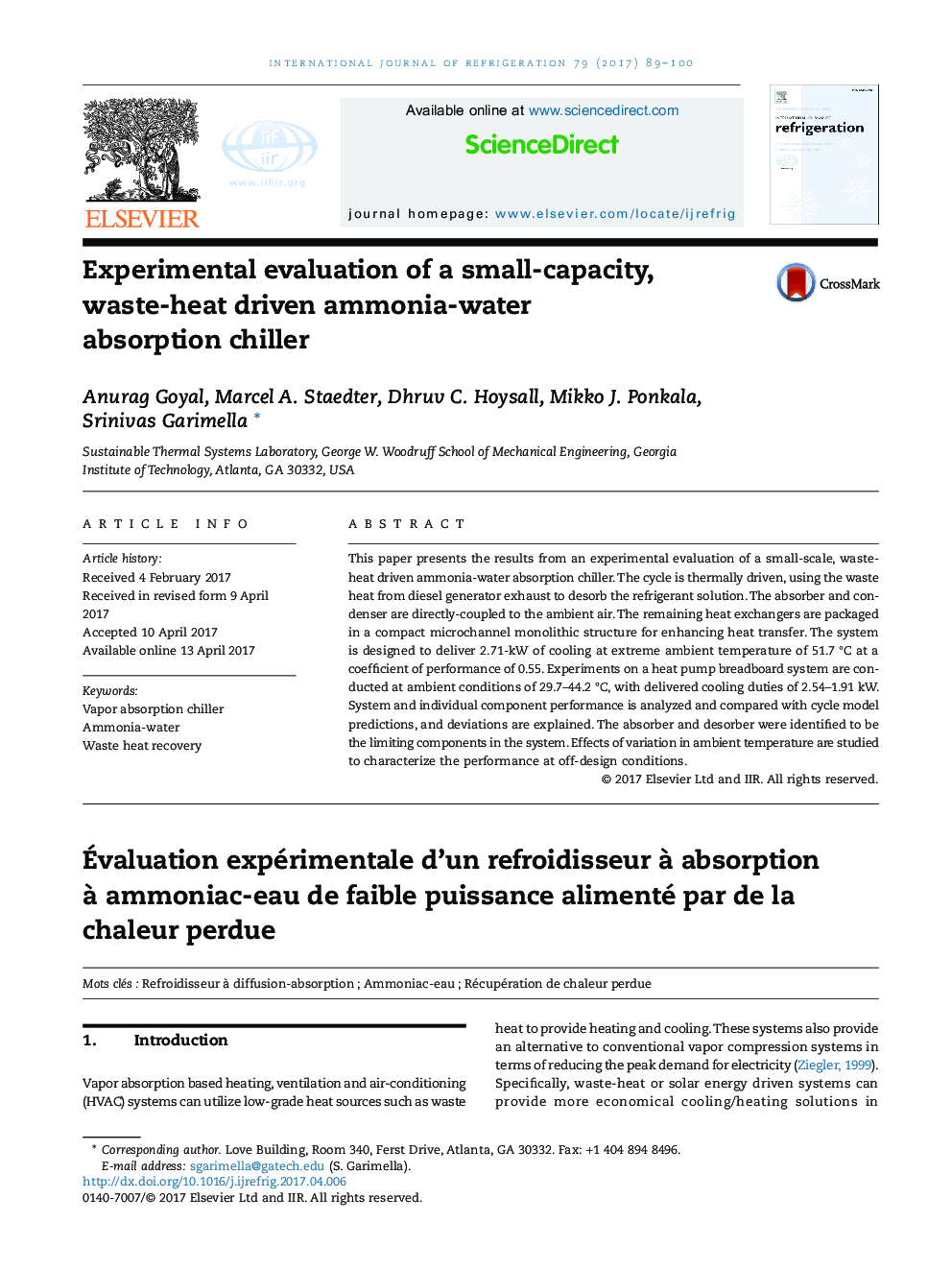| Article ID | Journal | Published Year | Pages | File Type |
|---|---|---|---|---|
| 5017253 | International Journal of Refrigeration | 2017 | 12 Pages |
Abstract
This paper presents the results from an experimental evaluation of a small-scale, waste-heat driven ammonia-water absorption chiller. The cycle is thermally driven, using the waste heat from diesel generator exhaust to desorb the refrigerant solution. The absorber and condenser are directly-coupled to the ambient air. The remaining heat exchangers are packaged in a compact microchannel monolithic structure for enhancing heat transfer. The system is designed to deliver 2.71-kW of cooling at extreme ambient temperature of 51.7â°C at a coefficient of performance of 0.55. Experiments on a heat pump breadboard system are conducted at ambient conditions of 29.7-44.2â°C, with delivered cooling duties of 2.54-1.91 kW. System and individual component performance is analyzed and compared with cycle model predictions, and deviations are explained. The absorber and desorber were identified to be the limiting components in the system. Effects of variation in ambient temperature are studied to characterize the performance at off-design conditions.
Related Topics
Physical Sciences and Engineering
Engineering
Mechanical Engineering
Authors
Anurag Goyal, Marcel A. Staedter, Dhruv C. Hoysall, Mikko J. Ponkala, Srinivas Garimella,
